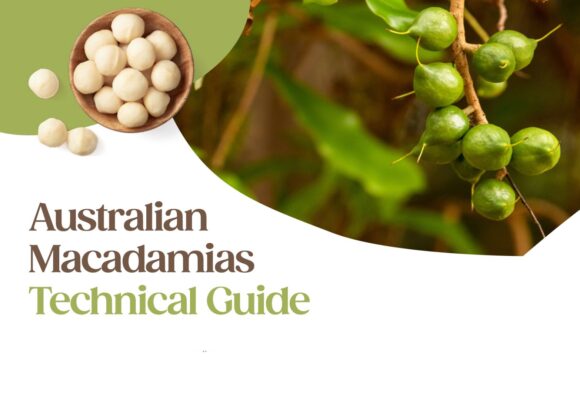New Australian study confirms link between nut consumption and heart health
High quality scientific evidence confirms regular nut consumption is associated with a reduced risk of death from heart disease and a reduction in heart disease risk factors, according to a new Australian review of more than 100 studies spanning 20 years.(1)

The extensive systematic literature review (SLR) on nuts and heart health was conducted by researchers from Landmark Nutrition and the University of Wollongong, with the summary report launched on 25 May 2015.
Leading nutrition academic and review co-author Prof Linda Tapsell said there is consistent evidence for the heart health benefits of nut consumption. “The review establishes that regular nut consumption as part of a healthy diet is associated with a reduced risk of death from heart disease and a reduction in risk factors for heart disease, in particular cholesterol,” said Prof Tapsell.
“Importantly the benefits with heart health were observed without any adverse effects on weight gain and outcomes were shown to be sustained for periods as long as 20 years.
“The contribution of nuts to a healthy diet can be easily underestimated. They’re often relegated to a snack food category and sometimes avoided by people trying to lose weight. This scientific evidence provides a very different perspective that deserves attention.”
Key findings from the SLR include:
- Nut consumption was associated with a moderately reduced risk of death from both coronary heart disease and cardiovascular disease.(1) Fifteen studies were examined including two key observational studies: a US study of 118,962 people that reported a 30% reduced risk of death from heart disease(2) and a study of 86,016 women reported a 35% reduced risk of total coronary heart disease respectively.(3)
- Eating tree nuts was consistently associated with an unweighted average reduction in total cholesterol of around 3.5%, LDL cholesterol of 4.2% and improved the LDL:HDL ratio, a key indicator of heart disease risk, by 7.3%.(1)
- Eating nuts was not associated with weight gain, a risk factor for heart disease. 1 The studies showed no increase in weight, BMI and waist circumference based on a consumption of nuts ranging from 15-126 grams a day.(1)
- Prospective cohort studies of regular nut consumers show consistent associations with healthier outcomes for periods as long as 20 years.(1)
“Based on this body of research, nuts can be considered a regular dietary inclusion. Like other plant foods, nuts deliver important components to the diet and as such they can easily be front of mind alongside fruit, vegetables and grains,” said Prof Tapsell.
Nuts for Life, Australia’s leading nutrition authority on tree nuts and health, commissioned the review which provides the evidence to support the general health claim that daily nut consumption as part of a healthy, varied diet contributes to heart health.
Nuts For Life Program Manager and Advanced Accredited Practising Dietitian Ms Lisa Yates said to take advantage of potential heart health benefits, 30 grams or a handful of nuts a day serves well as part of a healthy diet. “The amount of nuts eaten in the reviewed studies ranged from 15-168 grams of nuts per day making it difficult to determine an exact dose at which nuts make the greatest contribution without further analysis,” said Ms Yates. “However, in reviewing the evidence and the current Australian Dietary Guidelines, researchers concluded 30 grams, or a handful, a day in a healthy diet is an appropriate recommendation targeting heart health benefits without the risk of weight gain.
“Nut consumption in Australia falls a long way short of the recommended 30 gram handful. The documents that underpin the Australian Dietary Guidelines note that for the population, an increase in nut consumption by 350% would align with healthy dietary models.(4) The recent Australian Health Survey 2011-13 results show on average the population reported eating just 5-6g of nuts on the day of the survey.”(5)
Since the SLR was finalised in early 2015, new published research has continued to build on the impressive body of evidence. A meta-analysis, published in the American Journal of Clinical Nutrition, concluded that higher nut consumption, around 30 grams of nuts a day, was associated with a reduced risk of death from heart disease by 40%, all causes by 27% and cancer by 14%, when compared to people who ate nuts less than once a week.(6)
A second study, published in the JAMA Internal Medicine, was the first to show a lower risk of death from cardiovascular disease among regular nut eaters from different ethnic and socioeconomic backgrounds.(7) Previous research linking nut consumption with lower mortality primarily focused on higher-income, white populations.7 The US research reported a 21% reduced risk each of total mortality and cardiovascular disease deaths.(7) There was also a 30-40% reduced risk of heart disease for all ethnic groups comparing highest to lowest nut consumers.(7) The researchers concluded nuts could be a cost effective dietary measure to improve cardiovascular health. (7)
“Nuts are nutrient dense and rich in bioactive components many of which may contribute to heart health benefits such as healthy fats, plant omega 3 ALA, fibre, vitamin E and phytochemicals with antioxidant properties. The amino acid arginine aids endothelial function by helping blood vessels to dilate and remain elastic, as well as helping to prevent blood clots,” said Ms Yates. “Another key heart health mechanism is through increased LDL cholesterol particle size helping to make the cholesterol particles less destructive. “This evidence helps explain why mixed nuts are a five star health food and at Nuts for Life, we recommend everyone choose their favourite raw or dry roasted nuts and enjoy a 30g healthy handful every day.”
Want more information?
For any further details please feel free to contact lynne.ziehlke@macadamias.org or Lisa Yates admin@nutsforlife.com.au
References
1. Neale. E, Nolan Clark D and Tapsell LT. The effect of nut consumption on heart health: a systematic review of the literature. Nuts for Life North Sydney 2015. (unpublished).
2. Bao Y, Han J, Hu FB, Giovannucci EL, Stampfer MJ, Willett WC, Fuchs CS. Association of nut consumption with total and cause-specific mortality. N Engl J Med. 2013 Nov 21;369(21):2001-11.
3. Hu FB, Stampfer MJ, Manson JE, Rimm EB, Colditz GA, Rosner BA, et al. Frequent nut consumption and risk of coronary heart disease in women: prospective cohort study. Brit Med J 1998;317(7169):1341-5.
4. National Health and Medical Research Council (2013) Australian Dietary Guidelines. Canberra: National Health and Medical Research Council.
5. ABS 4364.0.55.003 – Australian Health Survey: Updated Results, 2011-2012. Australian Government 2015.
6. Grosso G et al. Nut consumption on all-cause, cardiovascular, and cancer mortality risk: a systematic review and meta-analysis of epidemiologic studies. Am J Clin Nutr. 2015 Apr;101(4):783-93.
7. Luu HN et al. Prospective Evaluation of the Association of Nut/Peanut Consumption With Total and Cause-Specific Mortality. JAMA Intern Med. 2015 Mar 2. doi: 10.1001/ jamainternmed.2014.8347. [Epub ahead of print]


